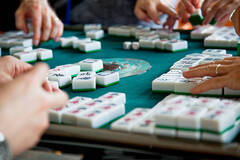Rabbi Fellman's High Holy Day 5786 Message
 After a challenging year, we come together to strengthen ourselves and each other, to renew our commitments, to recharge our covenants, to refresh our souls, to renew the bonds which have linked us from Abraham and Sarah until today. Some years this endeavor feels like an easy task, and some years it lurks large, with so much weight on our shoulders. This year feels like one of the harder times, with tugs and pulls in every direction.
After a challenging year, we come together to strengthen ourselves and each other, to renew our commitments, to recharge our covenants, to refresh our souls, to renew the bonds which have linked us from Abraham and Sarah until today. Some years this endeavor feels like an easy task, and some years it lurks large, with so much weight on our shoulders. This year feels like one of the harder times, with tugs and pulls in every direction.
Teshuvah, the Hebrew word most central to this time of year, is usually understood as repentance. Our prayers throughout the High Holy Days call us to take an accounting for our actions over the past year and make a sincere effort to atone for our shortcomings, turning away from less than desirable patterns. These actions are essential, yet they are not enough. If we only focus on accounting for the year just ended, we have addressed
only a fraction of what our tradition invites us to consider.
This year in particular, an expansive understanding of teshuvah provides the opportunity to use this season to really engage in the building of our
community. While teshuvah can and does include repentance, teshuvah also includes renewal, refreshing, recharging, and recommitting.
As we work to build a new congregation for our community, renewal takes a special role. Our congregations share long and honorable histories. For generations both have risen to meet the needs of the current generation, to take risks and undertake new programs and ideas to better connect with Jews of all ages. Now is the time for our generation to enter this same arena, to renew our connections to each other, to community, to God, and the Jewish people. Now is the time to be experimental, to take risks, to think of new ways to connect.
If the holidays are a time to refresh our souls, then this time in our community’s history may best be labeled “a time of refreshing our understanding of who we are and what we need.” We have all changed since last year’s High Holy Days. Some of those changes were internally driven, and some came about because of external forces. As a new Jewish community, now is a time to refresh our worldview, to see what is happening in other parts of the Jewish world, and to craft a new vision of who we can become.
For most of us, the High Holy Days represent the overwhelming majority of time we will spend in the synagogue during the coming year. These hours together become recharging time—time to refill our tanks for the coming year. But if the past year is any indication, the recharging we do right now needs to be understood differently. Ours are not long-range batteries capable of rare recharging. Rather, we need regular time with the charger, time to center ourselves, to remind each of us of our best selves. So yes, let’s use these holidays to recharge, but even more, let’s commit to keeping the charge and full power all year long.
And finally, as we enter this first set of holidays as a new entity, we will all benefit by finding new ways to commit to our collective well-being. One of the most powerful lessons of the unification process and the political era in which we live is the clear realization that we need as many of
us as possible working together. Outside forces are working feverishly to disrupt and divide us. Now is the time to recommit, to recognize and celebrate and sanctify the act of community building.
Melissa, Zach, Jacob, and Lizzie join me in wishing you a sweet, happy, and healthy new year. We can’t wait to create together with all of you!
L’Shanah Tovah,
Rabbi Daniel J. Fellman


